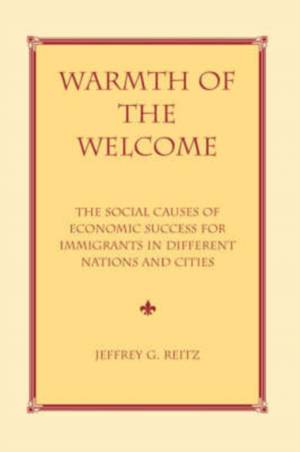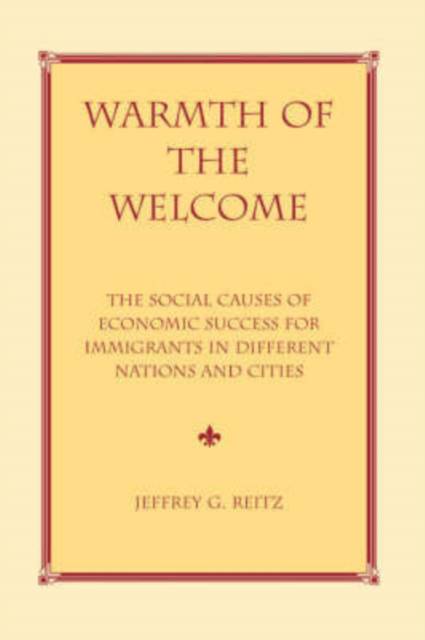
- Afhalen na 1 uur in een winkel met voorraad
- Gratis thuislevering in België vanaf € 30
- Ruim aanbod met 7 miljoen producten
- Afhalen na 1 uur in een winkel met voorraad
- Gratis thuislevering in België vanaf € 30
- Ruim aanbod met 7 miljoen producten
Zoeken
Warmth Of The Welcome
The Social Causes Of Economic Success In Different Nations And Cities
Jeffrey G Reitz
Paperback | Engels
€ 111,45
+ 222 punten
Uitvoering
Omschrijving
In this book, Jeffrey Reitz examines how the economic performance of immigrants is shaped by national and urban social institutions. His social institutional approach projects the impact of institutional restructuring on the economic performance of immigrants in Canadian or Australian cities.
Specificaties
Betrokkenen
- Auteur(s):
- Uitgeverij:
Inhoud
- Aantal bladzijden:
- 312
- Taal:
- Engels
Eigenschappen
- Productcode (EAN):
- 9780813368023
- Verschijningsdatum:
- 14/05/1999
- Uitvoering:
- Paperback
- Formaat:
- Trade paperback (VS)
- Afmetingen:
- 152 mm x 229 mm
- Gewicht:
- 421 g

Alleen bij Standaard Boekhandel
+ 222 punten op je klantenkaart van Standaard Boekhandel
Beoordelingen
We publiceren alleen reviews die voldoen aan de voorwaarden voor reviews. Bekijk onze voorwaarden voor reviews.







